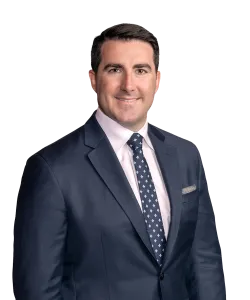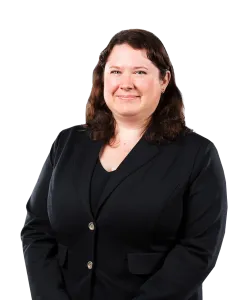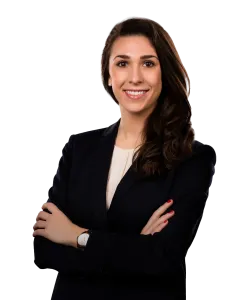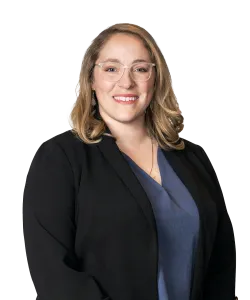Federal Court Imposes Nearly $1 Billion in FCA Damages and Penalties Against Omnicare and CVS
Headlines that Matter for Companies and Executives in Regulated Industries
Federal Court Imposes Nearly $1 Billion in FCA Damages and Penalties Against Omnicare and CVS
On July 7, Southern District of New York District Judge Colleen McMahon increased a False Claims Act (FCA) judgment from $136 million against Omnicare, Inc. and CVS Health Corp. to a combined $949 million, following a jury’s finding that Omnicare submitted over 3.3 million false prescription claims for long-term care patients over an eight-year period. CVS, which acquired Omnicare in 2015, was found responsible for approximately 30% of these claims.
As required by the FCA, the court trebled the jury’s damages award of $136 million to $406 million and imposed an additional $542 million in statutory penalties. CVS was held jointly and severally liable for $164.8 million of the penalties, reflecting its share of the false claims. Notably, the court rejected arguments that FCA penalties should be capped at a 1:1 ratio to actual damages, instead finding that a 4:1 ratio was constitutionally permissible given the egregious and deliberate nature of the violations. The judge specifically noted that “Omnicare was aware for years of the problems posed by its dispensing practices,” yet failed to implement straightforward means of resolving the problems.
Judge McMahon emphasized that the violations were not only deliberate but also persisted for years despite repeated warnings and available remedies. The court also clarified that the Eighth Amendment’s Excessive Fines Clause, rather than due process concerns, governs the constitutionality of FCA penalties, and that penalties well below the statutory maximum, as was the case here, are strongly presumed constitutional.
See our previous reporting on the Omnicare and CVS Health verdict here.
DOJ and HHS Announce Revival of FCA Working Group
On July 2, the US Department of Justice (DOJ) and US Department of Health and Human Services (HHS) announced the revival of the FCA Working Group. This signals a renewed and expanded focus on health care fraud enforcement. While the announcement doubles down on traditional enforcement priorities like kickbacks and drug pricing, it also demonstrates an increased focus on electronic health records manipulation. The expansion could expose non-traditional health care entities like data vendors to government scrutiny and FCA exposure.
Check out our detailed discussion of the announcement and implications here. Read the DOJ’s press release here.
Remote Patient Monitoring Company and Doctor Settle FCA Suit for Nearly $1.3 Million
On June 26, Health Wealth Safe, Inc., a Georgia-based remote patient monitoring company, and Dr. Subodh Agrawal agreed to pay $1.29 million to resolve allegations that they caused false claims related to remote physiologic monitoring (RPM) and chronic care management services that were not reimbursable under Medicare.
According to the government, the defendants offered kickbacks to physician practice groups in exchange for the enrollment of patients in Health Wealth’s RPM services. RPM uses devices to monitor and analyze a patient’s metrics, and, to be covered by Medicare, these devices must report readings to monitoring companies without human intervention. The government alleged that Health Wealth billed for RPM services, despite allegedly failing to provide patients with monitoring devices that qualified for coverage under Medicare.
Read the DOJ’s press release here.
DOJ Announces Historic Health Care Fraud Takedown, Charging Over 300 With More Than $14.6 Billion in Alleged Schemes
On June 30, the DOJ announced criminal charges against 324 defendants, including 96 doctors, pharmacists, and other licensed medical professionals, for their participation in various health care fraud schemes involving over $14.6 billion.
Dubbed the “2025 National Health Care Fraud Takedown” by the government, the operation was coordinated across 50 federal districts and 12 state attorneys general offices. The results of the operation led to the seizure of over $245 million in cash, luxury vehicles, cryptocurrency, and other assets.
One of the alleged schemes that was part of the “takedown,” known as Operation Gold Rush, resulted in the largest amount ever charged in a health care fraud case brought by the DOJ. The government charged 19 defendants, 12 of whom have already been arrested, for allegedly submitting $10.6 billion in fraudulent health care claims to Medicare for urinary catheters and other durable medical equipment by using stolen identities of over one million Americans.
In another alleged scheme, the DOJ also charged 49 defendants for allegedly submitting over $1.17 billion in fraudulent claims to Medicare relating to telemedicine and genetic testing fraud schemes, including the owner of a Florida telemedicine and durable medical equipment company for his alleged involvement in a $46 million scheme that targeted Medicare beneficiaries through a deceptive telemarking campaign, and for his alleged submission of fraudulent claims.
In yet another alleged scheme, 74 defendants, including 44 licensed medical professionals, were charged with the alleged diversion of over 15 million pills of prescription opioids and other controlled substances. The defendants allegedly conspired to distribute quantities of oxycodone, hydrocodone, and carisoprodol.
Other cases that were part of the “takedown” included 170 defendants charged with various health care fraud schemes concerning over $1.84 billion in allegedly false and fraudulent claims for testing, medical visits, and treatments that were either not medically necessary, provided in connection with kickbacks and bribes, or never provided at all.
As part of the nationwide operation, the DOJ announced that it is working with the HHS Office of Inspector General, the Federal Bureau of Investigation, and other agencies to create a “Health Care Fraud Data Fusion Center” to gather experts to leverage cloud computing, artificial intelligence, and analytics to identify emerging health care fraud schemes.
Read the DOJ’s press release here.
An indictment is merely an allegation. All defendants are presumed innocent until proven guilty beyond a reasonable doubt in a court of law.
SEC Brings $4 Million Fraud Complaint Against Go X
The US Securities and Exchange Commission (SEC) filed a complaint on July 3 against scooter rental company Go X Inc. and its executives, alleging that they fraudulently raised approximately $4 million from 300 investors through fraudulent and unregistered securities sales.
The complaint alleges that the defendants, who promoted Go X through their website, YouTube, and in direct communications, represented to investors that Go X would pay investors a share of its gross profits from scooter rental fees in exchange for the investors’ principal payment, which typically ranged from $2,000 to $30,000, and that investors could expect to be paid back their principal plus returns of up to 100% in a year or less. The government also alleges that the defendants touted “guaranteed” investor refunds upon request and portrayed Go X as less risky than investing in the S&P 500.
The complaint alleges that these representations were false and misleading, that by the end of 2023, Go X had only paid investors about $1.45 million (less than half of the approximately $4 million in principal raised), and that Go X failed to pay the “guaranteed” refunds upon request. Despite the poor performance and multiple complaints by investors, the defendants allegedly continued to sell the investment with the same sales pitch.
The suit alleges various securities law violations, including violations of Section 10(b) of the Exchange Act, Rule 10b-5 thereunder, and Sections 5(a), 5(c), and 17(a) of the Securities Act against the company, and violations of Sections 5(a), 5(c), 17(a)(1), and 17(a)(3) of the Securities Act and Section 10(b) of the Exchange Act and Rule 10b-5 thereunder against the executives.
The case is SEC v. Cheetah X Inc. (d/b/a Go X), Alexander Debelov and Khodr Salam, No. 1:25-cv-23002 (Southern District of Florida).
A complaint is merely an allegation and is not proof of liability.
Contacts
- Related Industries
- Related Practices








